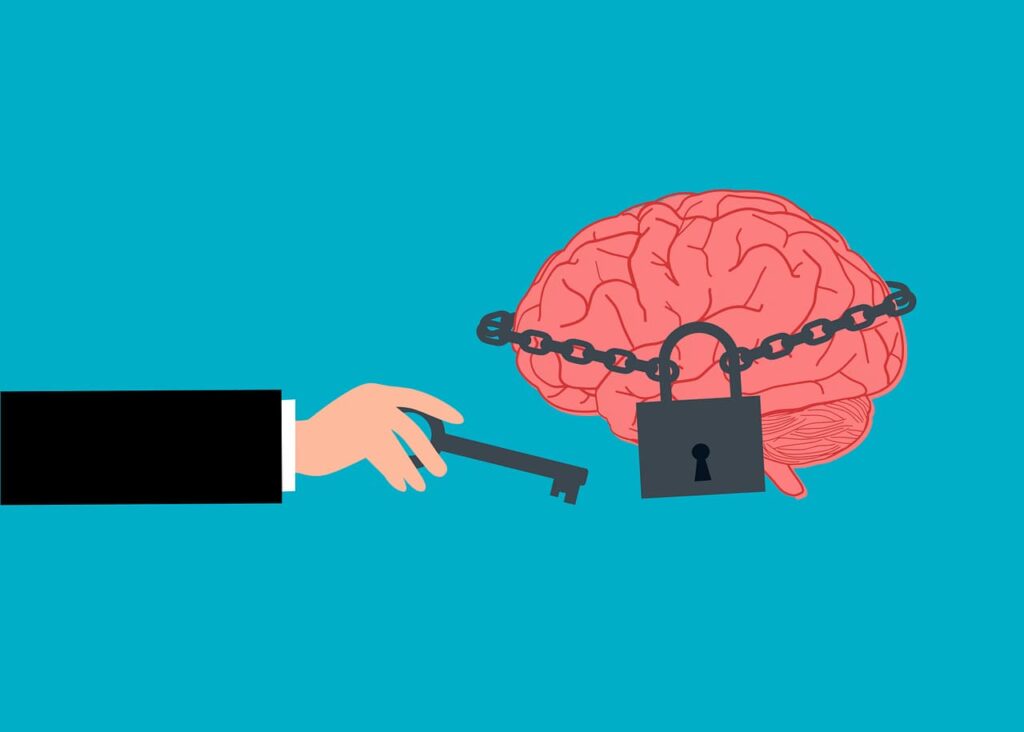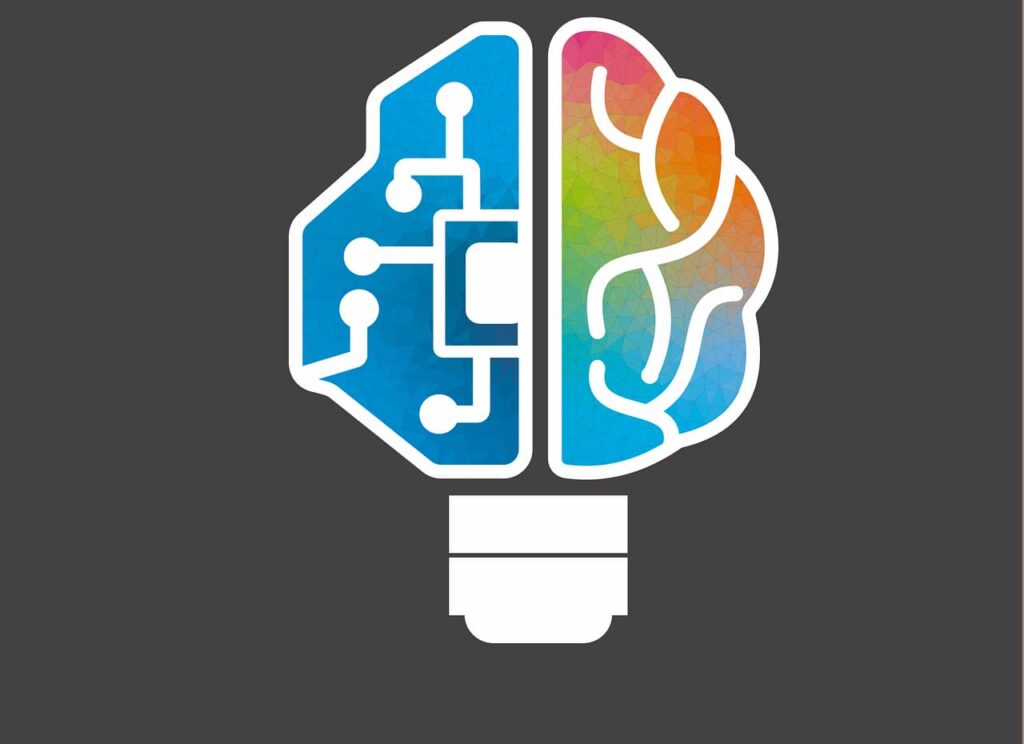Subscribe To Get Latest Updates!


How to Overcome Memory Block
Memory blocks can happen to anyone, whether during a conversation, an exam, or a presentation. One moment, you’re confident in what you know, and the next, your mind seems to go blank. These memory lapses can be frustrating and even stressful, especially when they occur at important moments. But the good news is that memory blocks are usually temporary, and with the right strategies, they can be managed and even prevented.
In this article, we’ll explore practical tips for overcoming memory blocks, both in the moment and long-term. From simple techniques like taking deep breaths and using memory cues, to building stronger recall through regular memory exercises, there are many ways to improve your memory. Whether you experience occasional forgetfulness or frequent memory challenges, understanding why memory blocks happen and how to overcome them can help you feel more confident and in control of your memory.
Table of Contents
1. Introduction
A memory block refers to a temporary inability to recall information that you know or have previously learned. It’s often described as a mental “blank” where you struggle to remember something important, such as a name, fact, or idea, despite knowing it. This can happen in both high-pressure situations, like exams or presentations, and in everyday scenarios, such as forgetting a word during a conversation.
While memory blocks are usually temporary, they can be frustrating, especially when you need to remember something important quickly. Managing stress and practicing recall techniques can help reduce memory blocks over time.
1.1 Understanding the Causes of Memory Block

Memory blocks can occur when the brain struggles to retrieve information that has already been learned. These blocks are often frustrating, especially when they happen at critical moments, such as during exams, presentations, or important conversations. There are several factors that can lead to memory blocks, including stress, mental fatigue, distractions, and poor sleep. Understanding these causes can help in preventing and managing memory lapses. Below are some of the key reasons behind memory blocks:
Stress and Anxiety
How Stress Triggers Memory Blocks: Stress and anxiety, particularly in high-pressure situations like exams, presentations, or job interviews, can significantly interfere with memory. When we’re anxious, the brain’s “fight or flight” response is activated, releasing stress hormones such as cortisol and adrenaline. These hormones prepare the body to respond to perceived danger by focusing on immediate survival rather than recalling stored information.
Impact on Memory: The brain’s stress response diverts attention and energy away from cognitive processes like memory retrieval. Instead of calmly recalling facts or information, the brain becomes preoccupied with the stressor, leading to a mental “blank.” This is why someone might forget a simple fact or concept during a test, even though they knew it well beforehand.
Pressure-Induced Forgetfulness: The pressure to perform perfectly during an exam or presentation often heightens anxiety, making memory blocks more likely. The more anxious we feel about needing to remember something, the harder it becomes to access that information.
Example: A student who has studied thoroughly for an exam may experience a memory block during the test because the anxiety over answering correctly triggers the fight or flight response, making it difficult to retrieve the answers they’ve learned.
Mental Fatigue and Overload
How Fatigue and Cognitive Overload Cause Memory Lapses: Mental fatigue occurs when the brain is overworked or exhausted from prolonged cognitive effort, such as studying for hours without a break or managing a heavy workload. When the brain is tired, its ability to process, store, and retrieve information is compromised, leading to memory lapses.
Cognitive Overload: Handling too much information at once or working through complex problems without sufficient rest can overwhelm the brain’s processing capacity. When there is too much information being managed at the same time, the brain struggles to organize and access it, causing memory blocks.
Reduced Mental Energy: Just like physical exhaustion impairs performance, mental fatigue reduces the brain’s efficiency in focusing, encoding memories, and retrieving them later. This can result in forgetting important details or struggling to recall basic information.
Example: A person working on a complex project for several hours straight without breaks might forget key details or experience difficulty organizing thoughts, as their mental energy is depleted.
Lack of Focus
How Distractions Lead to Memory Blocks: Focus is essential for memory retrieval, and distractions whether external or internal—can interfere with this process. External distractions, such as noise, interruptions, or a cluttered environment, can pull attention away from the task at hand. Internal distractions, like wandering thoughts or worrying about unrelated matters, can similarly disrupt focus.
Reduced Attention Span: When focus is interrupted by distractions, the brain’s ability to retrieve stored information is compromised. Instead of smoothly accessing memory, the mind becomes fragmented, struggling to connect the dots or recall details.
Difficulty Encoding Memories: Lack of focus also impacts how well information is encoded in the first place. If attention is divided while learning something, the information may not be properly stored in memory, making it harder to retrieve later.
Example: Someone preparing for a presentation in a noisy environment might struggle to focus, leading to a memory block during the actual presentation when trying to recall key points.
Sleep Deprivation
The Role of Poor Sleep in Memory Impairment: Sleep is crucial for memory consolidation, which is the process where the brain organizes and stores the information learned during the day. During sleep, the brain transfers memories from short-term to long-term storage, strengthens neural connections, and removes unnecessary information. When sleep is disrupted or insufficient, this process is impaired, leading to poor memory recall and cognitive fog.
Impaired Memory Recall: Lack of sleep affects the brain’s ability to retrieve stored information. Sleep-deprived individuals often experience memory lapses or difficulty remembering even basic facts because their brain hasn’t had the chance to consolidate memories properly.
Cognitive Impairment: In addition to affecting memory, sleep deprivation impacts attention, focus, and decision-making. These combined effects make it harder for the brain to function efficiently, often resulting in memory blocks during important tasks.
Example: A professional who stays up late preparing for a big meeting may have trouble recalling key details during the presentation due to poor memory consolidation from lack of sleep.
Information Overload and Cramming
How Trying to Absorb Too Much Information Causes Memory Blocks: Cramming, or trying to learn a large amount of information in a short period of time, overwhelms the brain’s ability to process and store that information. When the brain is flooded with too much data, it struggles to organize it effectively, which makes it difficult to retrieve later. This is a common problem during exam preparation, when students try to review large amounts of material the night before a test.
Short-Term Overload: Cramming places excessive pressure on the brain’s working memory, which is responsible for temporarily holding and managing information. When working memory is overloaded, it becomes harder to access information, leading to memory blocks.
Lack of Proper Consolidation: When information is crammed, it doesn’t have time to be properly encoded and transferred into long-term memory. Instead, it may only reside in short-term memory, where it is more prone to being forgotten.
Example: A student who crams for an exam the night before might experience memory blocks during the test because their brain is overloaded with too much information that hasn’t been consolidated into long-term memory.
Memory blocks can occur due to several factors, including stress and anxiety, mental fatigue, lack of focus, sleep deprivation, and information overload. High-pressure situations trigger the brain’s stress response, making it harder to recall information, while mental exhaustion and distractions reduce cognitive function and focus. Poor sleep disrupts the memory consolidation process, and cramming overwhelms the brain’s ability to store and organize information. Understanding these causes can help individuals manage memory blocks by reducing stress, getting adequate rest, staying focused, and practicing better memory habits.
2. Recognizing When a Memory Block is Occurring

Recognizing the signs of a memory block and understanding the emotional and physical responses associated with it are important steps toward overcoming the block. Below is a detailed explanation of how to recognize when a memory block is happening, focusing on both the signs of a memory block and the emotional and physical symptoms that accompany it.
Signs of a Memory Block
Struggling to Recall Information You Know Well: One of the most common signs of a memory block is the sudden inability to recall information that you are certain you know well. This could be a fact, a name, a phone number, or an important point you’ve rehearsed for a presentation or test. Despite knowing the information, your brain seems to hit a mental wall, and the harder you try to retrieve it, the more elusive it becomes. This often happens in high-pressure situations, where you feel the need to remember something quickly.
Mental Blank: You may experience a “blank” feeling in your mind, where no matter how much you try, the information doesn’t come to you. It can feel like your mind has gone completely blank, making it difficult to retrieve even basic details.
Looping Thoughts: Another sign of a memory block is repeatedly going over the same mental steps, trying to recall the information, but getting nowhere. You may find yourself retracing your thoughts, trying to remember how you learned or thought about the information, only to end up mentally “stuck.”
Feeling Stuck on Simple Information: Memory blocks are particularly frustrating when they involve simple or obvious information that you normally have no trouble recalling. For example, forgetting someone’s name in a social situation or drawing a blank on a commonly used word during a conversation are common signs of a memory block.
Example: A student who studied thoroughly for a test might experience a memory block when faced with a question they know they can answer but suddenly can’t recall the relevant facts or concepts.
Emotional and Physical Symptoms
Emotional Responses to a Memory Block: Memory blocks are often accompanied by a range of emotional responses, particularly in high-stakes situations where recalling the information is important. These emotions can intensify the memory block, making it even harder to think clearly and retrieve information.
- Frustration and Panic: When you realize you can’t remember something that you know well, frustration is a common reaction. The longer the block lasts, the more likely frustration will turn into panic, especially if you’re under time pressure. This can lead to a vicious cycle, where the more you stress about the block, the harder it becomes to retrieve the information.
- Self-Doubt and Embarrassment: Memory blocks can also trigger self-doubt, especially if they happen frequently or in public settings. You may begin to question your memory abilities, worry about what others might think, or feel embarrassed that you can’t recall basic information. This self-doubt further compounds the pressure and anxiety, deepening the memory block.
- Overthinking: The emotional stress of a memory block often leads to overthinking. Instead of calmly letting the information come back to you, you may feel compelled to force it, which usually has the opposite effect and prolongs the block.
Example: During a job interview, a candidate might experience a memory block when asked to recall specific details from a past project. As frustration builds, they start to panic, making it even harder to remember, which leads to self-doubt and more stress.
Physical Responses to a Memory Block: In addition to emotional symptoms, memory blocks often trigger physical reactions, as the brain’s stress response (fight or flight) kicks in. This can cause a series of physiological changes that further interfere with memory retrieval.
- Increased Heart Rate: One of the first physical symptoms of a memory block is a racing heart. As the brain registers stress, the body reacts by increasing heart rate to prepare for action. This physical response, though helpful in dangerous situations, can make it harder to concentrate on retrieving information.
- Shallow Breathing: Memory blocks can also cause shallow breathing as anxiety sets in. Rapid, shallow breaths reduce the amount of oxygen reaching the brain, which impairs cognitive function and makes it even more difficult to think clearly or remember details.
- Tension and Sweating: Other physical responses include muscle tension (particularly in the neck, shoulders, and face) and sweating. These are signs that the body is reacting to the stress of the memory block, which can make you feel uncomfortable and distract you from focusing on retrieving the information.
Example: A student giving a presentation might suddenly forget a key point. As they struggle to remember, their heart starts racing, they begin to sweat, and their muscles tense up. These physical symptoms make it harder to calm down and recall the information, creating a cycle of stress and memory failure.
Recognizing when a memory block is occurring involves paying attention to both the mental and physical signs that accompany it. Struggling to recall information you know well, feeling mentally stuck, or getting frustrated with simple tasks are key indicators of a memory block. Emotionally, memory blocks often trigger feelings of frustration, panic, self-doubt, and embarrassment, which can make the block worse. Physically, the stress response may cause increased heart rate, shallow breathing, and muscle tension, further impairing memory retrieval. Understanding these signs helps individuals identify memory blocks early and take steps to reduce their emotional and physical effects, allowing for better recall and improved memory confidence.
3. Immediate Strategies to Overcome Memory Blocks

Memory blocks can be frustrating, especially when they occur at crucial moments like during an exam, presentation, or conversation. Fortunately, there are immediate strategies that can help alleviate memory blocks and restore recall. These techniques focus on calming the mind, refreshing mental focus, and using cues or prompts to trigger the memory. Below are five key strategies to overcome memory blocks:
Stay Calm and Breathe
Importance of Staying Calm and Using Deep Breathing: When a memory block occurs, stress and anxiety often follow, making it even harder to think clearly. The body’s natural “fight or flight” response kicks in, releasing stress hormones like cortisol that impair cognitive function. In this situation, staying calm is crucial for allowing your brain to relax and access the information you’re struggling to recall.
Deep Breathing Techniques: Deep breathing helps calm the nervous system, lower your heart rate, and reduce the stress response. This, in turn, allows your mind to refocus and makes it easier to retrieve information. By practicing diaphragmatic breathing—breathing deeply from your abdomen rather than shallow breaths from your chest—you send more oxygen to the brain, which improves focus and memory.
How to Use It: When you feel a memory block happening, pause and take several slow, deep breaths. Inhale deeply through your nose for a count of four, hold for a moment, then exhale slowly through your mouth for another count of four. Repeat this process until you feel calmer and your racing thoughts slow down.
How It Helps: Calming your mind through deep breathing relaxes your body and brain, reducing the mental noise that often comes with stress. As you relax, your cognitive functions improve, and memory recall becomes easier.
Example: If a presenter forgets a key point during a speech, they can pause for a moment, take a deep breath, and regain their composure. As their stress level decreases, it becomes easier to access the information they momentarily blocked.
Reset with a Break
Taking a Short Break to Refresh the Brain: Sometimes, the brain simply needs a brief reset to overcome a memory block. When you are stuck, trying to force the memory can create even more mental tension. Taking a short break—whether by standing up, stretching, or briefly walking away from the task—allows your brain to refresh, release the pressure, and refocus when you return.
Short Physical Breaks: Physical activity, even something as simple as standing up and stretching, boosts circulation and increases oxygen flow to the brain. This helps re-energize cognitive processes, clearing the mental fog that contributes to memory blocks.
Mental Break: Stepping away from the task for just a few minutes allows the brain to relax and process information unconsciously. When you return, you often find that the memory is easier to access, as the mind has had time to clear itself of tension and refocus.
How It Helps: Taking a short break shifts your focus away from the block, giving your mind time to relax. When you return to the task, your brain is in a refreshed state, making it easier to retrieve the information that was previously inaccessible.
Example: If a student struggles to recall an answer during an exam, they can take a few seconds to stretch or sit back and relax. This brief reset helps release mental tension and improves their ability to remember the information.
Retrace Your Steps
Mentally Retracing Steps to Trigger the Memory: When faced with a memory block, retracing your mental steps can often help you recover the missing information. This involves going back through the chain of thoughts, ideas, or experiences that led to the moment when the memory was first formed. Revisiting related concepts or ideas may provide clues that trigger the blocked memory.
Contextual Recall: Think about the context in which you originally learned or encountered the information. This includes recalling where you were, what you were doing, and what other details surrounded the memory. Sometimes, simply revisiting the context helps trigger the recall of the missing information.
Connected Ideas: If the memory is related to specific facts or concepts, try recalling the details that are closely associated with the blocked information. These related pieces of knowledge may serve as mental cues, guiding you back to the missing detail.
How It Helps: Retracing your steps helps you reconnect with the original context of the memory, making it easier to recall what is blocked. This technique uses the brain’s associative memory function, where one idea leads to another.
Example: During a meeting, if someone forgets a point they planned to make, they can mentally retrace the conversation or presentation up to that moment. By revisiting the topics already covered, they may recall the point they originally intended to make.
Use Memory Cues
Using Memory Cues to Jog the Memory: Memory cues or prompts are powerful tools for overcoming memory blocks. These cues can be keywords, visual images, associations, or anything that relates to the information you’re trying to recall. They act as mental triggers, helping your brain access the memory by reconnecting with the original learning context or associated details.
Keywords and Associations: If you’re trying to recall a fact, name, or piece of information, think of associated keywords or phrases that might be connected. For example, if you’re trying to remember someone’s name, think of their profession, appearance, or the situation in which you met them.
Visualization: Visual cues can be extremely helpful for triggering memory. Try to visualize the context or scenario where you first encountered the information. If you can mentally picture a location, chart, or specific moment, the memory may come back more easily.
How It Helps: Memory cues stimulate the brain’s associative networks, helping to reconnect with the stored information. These prompts provide just enough context or related detail to jog the memory, making it easier to overcome the block.
Example: A student who forgets a key term during an exam might recall a keyword from their study notes or visualize the diagram associated with the concept. This visual or verbal cue can help restore the memory of the term.
Change the Focus
Shifting Focus to Break the Mental Block: When a memory block persists, it can help to shift your focus temporarily to another task or topic. Focusing too hard on retrieving the blocked information can sometimes make the block worse, so stepping away from the specific memory and thinking about something else gives the brain a chance to reset.
Switching Tasks: If you’re in the middle of a complex task and experience a memory block, try switching to a simpler task for a few minutes. This gives your brain a break from the pressure of trying to remember, and often, the missing information comes to mind once you’ve shifted focus.
Thinking About Unrelated Topics: Shifting focus to a completely different subject for a short period can break the mental loop that contributes to memory blocks. By distracting the mind with another topic, you allow it to relax, making it easier to access the blocked memory when you return.
How It Helps: Changing focus gives the brain a brief rest from the pressure of recalling the blocked memory. The brain often works in the background to retrieve the information while you focus on something else.
Example: During a presentation, if the speaker experiences a memory block, they might shift to another topic for a moment. After discussing a different point, they can return to the blocked topic with fresh focus, making it easier to retrieve the information.
Overcoming memory blocks is often about finding ways to calm the mind and provide it with the right environment for retrieval. Staying calm and using deep breathing reduces stress and allows the brain to refocus, while taking a short break refreshes cognitive processes. Retracing your steps and using memory cues help jog your memory by reconnecting with related information, and changing focus gives the brain time to reset and recover. By practicing these immediate strategies, you can more effectively manage memory blocks and improve your ability to recall information when you need it most.
4. Long-Term Strategies to Prevent Memory Blocks

Memory blocks are often triggered by stress, fatigue, poor lifestyle habits, or mental overload. While immediate strategies can help manage memory blocks as they occur, implementing long-term strategies can significantly reduce their frequency and improve overall memory function. These strategies involve improving cognitive health, reducing stress, and optimizing learning techniques. Below are some effective long-term strategies for preventing memory blocks.
Mindfulness and Meditation
Reducing Stress and Enhancing Cognitive Function: Regular mindfulness practice and meditation have been shown to improve overall cognitive function and help reduce the stress that often triggers memory blocks. Mindfulness involves focusing on the present moment, which can reduce distractions and improve attention. Meditation, particularly practices like mindfulness meditation or deep breathing exercises, helps train the brain to remain calm under pressure and improves focus and mental clarity.
Stress Reduction: One of the primary causes of memory blocks is stress, especially in high-pressure situations like exams or presentations. Mindfulness helps individuals manage stress more effectively by teaching them to focus on their breathing and calm their mind, preventing stress-induced memory blocks.
Improved Focus: By practicing mindfulness regularly, individuals become better at concentrating on tasks without distractions, which is crucial for encoding and retrieving memories. When your mind is trained to stay focused, it is easier to recall information, even in stressful situations.
Brain Health: Meditation has been shown to increase gray matter in areas of the brain associated with memory and learning, improving long-term memory retention and reducing the risk of blocks.
Example: A student who practices mindfulness meditation daily might find themselves more focused and less stressed during an exam. As a result, they are able to recall information more easily without the anxiety that can lead to memory blocks.
Exercise and Physical Activity
Improving Brain Function Through Physical Activity: Regular physical exercise is one of the best ways to improve overall cognitive function, including memory. Exercise increases blood flow to the brain, enhances neural connections, and stimulates the production of brain-derived neurotrophic factor (BDNF), which promotes the growth of new neurons. These physiological benefits directly improve memory function and prevent mental fatigue, which is a common cause of memory blocks.
Enhanced Blood Flow: Exercise improves cardiovascular health, which leads to better circulation and oxygen delivery to the brain. This helps the brain function more efficiently, reducing the likelihood of memory blocks.
Reduction of Mental Fatigue: Physical activity also helps reduce mental fatigue by improving mood, reducing stress hormones, and increasing energy levels. When your brain is well-rested and energized, it is better equipped to handle cognitive tasks and recall information without experiencing blocks.
Neurogenesis: Exercise stimulates the production of BDNF, which supports brain plasticity and helps with the formation and retention of new memories.
Example: A professional who includes regular aerobic exercise in their weekly routine might find themselves more alert and mentally sharp during work presentations. The improved cognitive function from consistent exercise makes memory blocks less likely.
Improving Sleep Hygiene
The Importance of Sleep for Memory Consolidation: Sleep plays a crucial role in memory consolidation, the process by which short-term memories are transformed into long-term ones. Poor sleep or irregular sleep patterns interfere with this process, leading to memory lapses and difficulty recalling information. Maintaining good sleep hygiene ensures that the brain has adequate time to consolidate and organize memories, making them easier to retrieve when needed.
Memory Consolidation During Sleep: During deep sleep, the brain strengthens neural connections related to learning and memory. REM sleep, which occurs later in the sleep cycle, is important for processing and storing emotional memories. Without adequate sleep, these processes are disrupted, leading to memory problems.
Consistency is Key: Establishing a regular sleep schedule helps regulate your body’s circadian rhythm, allowing you to get restorative sleep. A consistent sleep pattern improves cognitive function, including memory recall, and prevents the cognitive fog that contributes to memory blocks.
Avoiding Sleep Debt: Chronic sleep deprivation creates a sleep debt that impairs cognitive abilities, particularly memory. By prioritizing sleep, you can avoid this debt and maintain optimal brain function.
Example: An individual who ensures they get 7–9 hours of sleep each night and maintains a consistent bedtime will likely experience better recall during important meetings or exams, as their brain has had sufficient time to consolidate the information.
Healthy Nutrition
Supporting Cognitive Function Through a Balanced Diet: A healthy diet rich in brain-boosting nutrients is essential for maintaining cognitive function and preventing memory blocks. Certain foods, particularly those high in omega-3 fatty acids, antioxidants, and vitamins, have been shown to improve brain health and enhance memory. Additionally, staying hydrated is crucial for optimal cognitive performance, as dehydration can impair focus and lead to memory lapses.
Omega-3 Fatty Acids: Found in fatty fish (such as salmon and mackerel), walnuts, and flaxseeds, omega-3s support brain cell function and help improve memory and learning. They also protect against cognitive decline.
Antioxidants: Foods rich in antioxidants, such as berries, dark leafy greens, and nuts, help reduce oxidative stress in the brain, which is linked to memory loss and cognitive decline. Antioxidants support healthy brain aging and keep memory sharp.
Hydration: Proper hydration is vital for maintaining focus and mental clarity. Even mild dehydration can impair short-term memory and make it harder to concentrate, leading to memory blocks. Drinking enough water throughout the day helps prevent these issues.
Example: Someone who regularly consumes a diet rich in fatty fish, leafy greens, and berries, while also staying hydrated, will likely notice improved memory function and a reduction in memory lapses, especially in demanding cognitive tasks.
Time Management and Spaced Repetition
Using Time Management and Spaced Repetition to Avoid Overload: Effective time management and learning techniques, such as spaced repetition, can prevent memory blocks caused by information overload and cramming. Spacing out learning over time, rather than trying to absorb large amounts of information at once, allows the brain to better encode and retain the material, reducing the chances of experiencing memory blocks when recalling that information later.
Avoiding Cramming: Cramming too much information into a short period overwhelms the brain’s working memory, leading to disorganized storage of information and making it harder to recall details later. Spacing out study sessions gives the brain adequate time to absorb and process new information.
Spaced Repetition: This technique involves reviewing material at increasing intervals to strengthen memory retention. Revisiting the information after a few days, then a week, and later a month, helps reinforce the memory, making it easier to retrieve later. This method allows the brain to organize the information more efficiently and avoid overload.
Time Management: Managing your time well helps reduce the stress of last-minute cramming. By breaking tasks into smaller chunks and allowing time for review, you give your brain the space to retain information effectively without overwhelming it.
Example: A student who uses spaced repetition to study for an exam, reviewing the material multiple times over several weeks, is less likely to experience memory blocks during the test. Their brain has had adequate time to consolidate and store the information for easy recall.
Preventing memory blocks requires adopting long-term strategies that support overall brain health and improve cognitive function. Mindfulness and meditation help reduce stress and improve focus, while regular exercise enhances memory by boosting blood flow to the brain and reducing mental fatigue. Improving sleep hygiene ensures the brain has time to consolidate memories, while a healthy diet rich in brain-boosting nutrients supports cognitive function. Finally, using time management techniques and spaced repetition helps prevent information overload, allowing the brain to absorb and organize new information efficiently. By incorporating these lifestyle changes and techniques, individuals can reduce the frequency of memory blocks and improve their long-term memory performance.
5. Mental Exercises to Improve Recall and Avoid Blocks

Improving memory recall and preventing memory blocks requires consistent mental exercises that strengthen cognitive function and enhance the brain’s ability to retrieve information. These exercises train the brain to process, store, and access information more efficiently, reducing the likelihood of experiencing memory blocks, especially in high-pressure situations. Below are several effective mental exercises to boost recall and avoid memory blocks, including active recall techniques, chunking information, visualization methods, and memory games.
Active Recall Techniques
Practicing Active Recall for Stronger Memory: Active recall is a powerful memory technique where individuals actively retrieve information from their memory without referring to external materials (such as notes or textbooks). This method challenges the brain to work harder to bring up stored information, which strengthens the neural pathways responsible for recall. Over time, practicing active recall can significantly improve memory retention and reduce the occurrence of memory blocks.
How It Works: Unlike passive review (e.g., re-reading notes), active recall forces the brain to actively engage with the material. For example, after reading a chapter of a book, instead of re-reading it, try to write down everything you remember without looking. This process strengthens memory retrieval mechanisms.
Benefits: Active recall helps move information from short-term memory to long-term memory. By testing yourself on the material regularly, your brain becomes more adept at recalling information when needed, such as during exams, presentations, or discussions.
Regular Practice: Incorporating active recall into your study or work routine, such as by quizzing yourself or summarizing key points from memory, helps reduce the chances of memory blocks by keeping your memory sharp and responsive.
Example: A student preparing for a history exam might read a section of their textbook and then close it to actively recall the key dates and events. This strengthens their memory of the material and makes it easier to recall the information during the test.
Chunking Information
Breaking Information into Manageable Chunks: Chunking is a technique where large pieces of information are broken down into smaller, more manageable “chunks.” This method reduces cognitive overload, making it easier for the brain to store and retrieve information. Chunking is particularly useful for learning complex data, such as phone numbers, vocabulary, or technical details, as it helps the brain process smaller pieces of information more effectively.
How It Works: Instead of trying to memorize a large amount of information all at once, break it down into smaller sections that are easier to handle. For example, when memorizing a long number, break it into groups of three or four digits. Similarly, when learning a long list of items, group them into related categories.
Improved Recall: Chunking reduces the strain on working memory, allowing the brain to focus on smaller pieces of information, which makes retrieval faster and more reliable. By organizing information into logical chunks, it becomes easier to remember each group and how they relate to one another.
Applications: Chunking can be applied in various contexts, from memorizing a presentation to studying for an exam. The key is to organize the information into smaller, meaningful units that are easier to recall.
Example: When trying to memorize a long list of grocery items, group similar items together (e.g., fruits, vegetables, dairy) rather than trying to remember them in a random order. This chunking process makes it easier to recall the entire list.
Visualization and Memory Palaces
Using Visualization Techniques to Enhance Memory: Visualization is a memory technique where individuals create vivid mental images to help remember information. The brain processes images more easily than abstract information, so by associating a piece of information with a clear, mental picture, you can improve recall. A well-known visualization technique is the memory palace method, where you imagine placing pieces of information in specific locations within a familiar mental environment (e.g., your home). When you need to recall the information, you mentally “walk” through the palace and retrieve the details stored in each location.
Memory Palaces: This ancient technique involves mentally mapping out a familiar place, such as your home, and associating each piece of information with a specific location. For example, you might imagine placing a key fact in the kitchen or a number in the living room. When you need to recall the information, you mentally revisit the location in your palace to retrieve the memory.
Vivid Mental Images: Even without a memory palace, creating strong mental images linked to the information you want to remember helps improve recall. For example, if you’re trying to remember someone’s name, visualize an object or image that represents that name in a vivid, memorable way.
Increased Retention: Visualization helps encode information in a more meaningful way, making it easier to access later. This technique can be especially useful for memorizing complex or abstract concepts, as the brain can latch onto visual cues more easily than plain facts.
Example: If you need to memorize a list of words for a language class, you could use a memory palace by mentally placing each word in a different room of your house. When you need to recall the words, you can walk through each room in your mind and retrieve the corresponding word.
Practice with Memory Games
Using Memory Games to Sharpen Cognitive Skills: Memory games and brain-training apps are fun and effective ways to improve recall and boost cognitive function. These games challenge your brain in various ways, enhancing short-term memory, working memory, attention, and processing speed. By regularly engaging in memory games, you can train your brain to retrieve information more efficiently, which reduces the likelihood of memory blocks.
Types of Memory Games: Memory games like “Concentration” (matching pairs of cards), “Simon” (repeating a sequence of lights or sounds), and crossword puzzles are excellent for improving recall. Brain-training apps such as Lumosity, Peak, or Elevate offer various memory exercises designed to target specific cognitive skills.
Cognitive Benefits: These games challenge your brain to remember sequences, patterns, or specific details under pressure, which strengthens memory retrieval pathways. Regular practice enhances the brain’s ability to process information quickly and accurately, making recall easier in real-life situations.
Consistent Practice: Incorporating memory games into your daily routine helps keep your brain sharp and ready to retrieve information when needed. These exercises can be especially helpful for improving focus and overcoming distractions, which often contribute to memory blocks.
Example: A person who plays memory card-matching games regularly trains their brain to remember the location of cards, improving their short-term memory. Over time, this practice helps sharpen their overall recall abilities, making it easier to remember names, facts, or other details in daily life.
Implementing mental exercises is a crucial step toward improving recall and preventing memory blocks. Active recall techniques challenge the brain to retrieve information actively, strengthening memory pathways over time. Chunking information into manageable pieces reduces cognitive overload and improves recall efficiency. Visualization techniques, such as creating vivid mental images or using memory palaces, help encode information more effectively, making it easier to access. Finally, engaging in memory games keeps the brain sharp and ready to retrieve information quickly, reducing the chances of memory lapses. By incorporating these techniques into your routine, you can enhance your memory skills and build long-term confidence in your ability to recall information.
6. Managing Performance Anxiety to Avoid Memory Blocks

Performance anxiety is a common cause of memory blocks, especially in situations like exams, presentations, or public speaking. When anxiety levels rise, it becomes difficult to focus on retrieving information, as the brain prioritizes managing stress over accessing stored memories. To prevent memory blocks in these high-pressure situations, it’s important to understand performance anxiety and adopt strategies such as Cognitive Behavioral Techniques (CBT) and simulated practice. Below is a detailed explanation of how to manage performance anxiety to improve memory performance.
Understanding Performance Anxiety
How Performance Anxiety Causes Memory Blocks: Performance anxiety occurs when the pressure to perform well in a situation triggers stress, fear, or nervousness. This is particularly common in public speaking, exams, or job interviews, where there is a perceived high risk of failure or embarrassment. When this anxiety takes over, the brain’s “fight or flight” response is activated, releasing stress hormones such as cortisol and adrenaline. These hormones disrupt cognitive functions, including memory retrieval, making it difficult to recall even well-learned information.
Shift in Focus: During performance anxiety, the brain’s focus shifts from retrieving information to managing stress. Instead of calmly recalling facts or ideas, the mind becomes preoccupied with negative thoughts like “What if I fail?” or “I’ll forget everything.” This mental distraction blocks access to the information you need.
Increased Pressure and Panic: As the anxiety increases, so does the feeling of panic. When people panic, their thinking becomes foggy, and their ability to concentrate diminishes. This leads to more memory blocks, creating a cycle of stress and forgetfulness.
Physiological Responses: Physical symptoms of anxiety, such as a racing heart, sweaty palms, and shallow breathing, further impair cognitive performance by diverting mental energy away from memory retrieval.
Example: A student who has thoroughly studied for an exam might go blank when they sit down to take the test because their brain is overwhelmed by anxiety and stress, preventing them from recalling the information they know well.
Cognitive Behavioral Techniques (CBT)
Using CBT Strategies to Manage Performance Anxiety: Cognitive Behavioral Therapy (CBT) is a proven psychological approach to managing performance anxiety by changing negative thought patterns and reducing stress. CBT focuses on reframing negative thoughts, practicing relaxation techniques, and reinforcing positive outcomes, which can significantly reduce anxiety and improve memory performance in high-pressure situations.
- Reframing Negative Thoughts: Anxiety often stems from negative self-talk, such as “I’m going to mess up” or “I’ll forget everything.” CBT encourages individuals to reframe these thoughts into more positive or realistic ones. For example, instead of thinking “I will fail,” you can reframe it as “I have prepared well, and I’ll remember the important points.” By replacing negative thoughts with more balanced, supportive ones, you reduce anxiety and prevent memory blocks.
- Focusing on Positive Outcomes: Instead of worrying about what might go wrong, CBT encourages focusing on what could go right. Visualize yourself succeeding in the situation—completing the exam with confidence, delivering a presentation smoothly, or answering questions clearly in an interview. This positive focus calms the mind and prepares it for success.
- Relaxation Techniques: CBT often incorporates relaxation techniques such as deep breathing, progressive muscle relaxation, or guided imagery to help calm the body and mind before stressful situations. By practicing these techniques, individuals can reduce the physical symptoms of anxiety (like a racing heart or shallow breathing), which in turn helps with clearer thinking and better memory recall.
How CBT Helps: By breaking the cycle of negative thinking and using relaxation techniques to manage anxiety, CBT reduces the mental distractions that lead to memory blocks. This allows the brain to focus more effectively on retrieving the information needed.
Example: Before giving a presentation, a speaker might use CBT techniques to reframe negative thoughts from “I’ll forget my points” to “I’ve practiced this, and I know my material.” They might also practice deep breathing to calm their nerves, reducing anxiety and improving memory recall during the presentation.
Simulated Practice
Practicing in Simulated, Low-Stakes Environments: Simulated practice involves rehearsing in situations that mimic the high-pressure environment where memory blocks are likely to occur. By practicing in a controlled, low-stakes setting, individuals become familiar with the performance conditions, reducing anxiety when the actual event happens. Over time, this builds confidence and improves memory performance in real situations.
- Mimicking the High-Pressure Environment: To simulate a high-pressure environment, recreate the conditions of the upcoming event. If preparing for a presentation, practice speaking in front of a small audience. If studying for an exam, take timed, mock tests under similar conditions. This familiarizes the brain with the stress and helps individuals learn to recall information under pressure.
- Building Confidence Through Repetition: Repeated exposure to these simulated environments reduces the novelty and anxiety of the actual event. The more often individuals practice recalling information in a setting that mimics the real event, the more confident and comfortable they become, which significantly reduces performance anxiety.
- Desensitizing to Stress: Simulated practice helps desensitize the brain to the stress of the situation. As individuals become accustomed to performing under pressure, they learn to manage their anxiety and focus on the task at hand, which helps prevent memory blocks during the actual event.
How Simulated Practice Helps: Simulated practice helps the brain adapt to high-pressure conditions by providing repeated exposure in a safe environment. This familiarity reduces anxiety when the real event occurs, making it easier to access and retrieve information under stress.
Example: A job candidate might prepare for an interview by practicing mock interviews with friends or mentors. By simulating the high-pressure environment, they become more comfortable answering questions and recalling information, reducing the likelihood of memory blocks during the actual interview.
Performance anxiety is a major cause of memory blocks, but it can be managed with the right strategies. Understanding how anxiety affects memory is the first step toward overcoming it. Using Cognitive Behavioral Techniques (CBT), such as reframing negative thoughts, focusing on positive outcomes, and practicing relaxation methods, helps reduce stress and improves cognitive focus. Simulated practice further reduces anxiety by familiarizing the brain with high-pressure environments, allowing individuals to become more confident and improve memory retrieval when it matters most. By integrating these strategies into your preparation, you can manage performance anxiety effectively, reducing memory blocks and boosting overall performance in exams, presentations, or public speaking situations.
7. Dealing with Memory Blocks in High-Pressure Situations

Memory blocks can be particularly challenging during high-pressure situations, such as exams, presentations, or important social and professional settings. These moments of “going blank” are often triggered by stress, and they can increase anxiety, which further disrupts memory retrieval. However, by using specific strategies tailored to each type of situation, it’s possible to overcome memory blocks, regain focus, and improve performance. Below are techniques for dealing with memory blocks in exams, presentations, and professional or social settings.
During Exams
Overcoming Memory Blocks During Exams: Exams are high-stakes situations that often trigger memory blocks due to anxiety, time pressure, and the overwhelming amount of information that needs to be recalled. When a memory block occurs during an exam, it’s crucial to stay calm and use practical strategies to regain focus and retrieve the information.
Skip and Return Later: If you encounter a question that triggers a memory block, skip the question and move on to the next one. This prevents you from wasting time and getting more anxious about the blocked memory. Often, while answering other questions, your brain will subconsciously continue working on the blocked information. By the time you return to the skipped question, the memory may surface more easily.
Write Down Keywords or Concepts: If you are stuck on a question but remember part of the answer, write down keywords or concepts related to the topic. This can jog your memory and help you piece together the missing information. Even if you can’t recall the full answer immediately, keywords can act as mental cues, triggering the recall of more details as you go along.
Breathe and Refocus: If the block persists, take a few deep breaths to calm your nerves. Deep breathing helps reduce anxiety, bringing oxygen to the brain and allowing you to focus more clearly. After calming down, re-read the question carefully to refocus on what’s being asked.
Example: During a math exam, a student forgets the steps to solve a particular equation. Rather than fixating on the problem, they skip it and answer other questions. Later, they return to the skipped question and write down formulas and key terms, which helps trigger their memory of the solution.
Presentation and Public Speaking Tips
Managing Memory Blocks During Presentations or Speeches: Public speaking and presentations are common triggers for memory blocks due to performance anxiety. The fear of forgetting important points in front of an audience can heighten stress, making it harder to recall information. However, there are several strategies to manage memory blocks and continue speaking confidently.
Pause to Gather Your Thoughts: If you experience a memory block during a presentation, pause for a moment rather than trying to force the memory. Taking a brief pause allows you to collect your thoughts, and it gives your brain time to recover and retrieve the information. Pausing can also make you appear more composed to your audience.
Use Cue Cards or Slides: Having cue cards or presentation slides with key points can act as a safety net if you forget what you’re going to say. Instead of writing out your entire speech, note the main ideas or bullet points to keep you on track. If you experience a memory block, glance at your notes or slides to remind yourself of the next point.
Practice Deep Breathing: Deep breathing can calm your nerves and improve focus if anxiety is blocking your memory during a speech. Take a slow, deep breath while maintaining eye contact with the audience. This short moment of breathing helps reduce stress hormones, allowing your brain to focus on recalling the blocked information.
Example: A presenter forgets their next point during a business presentation. Instead of panicking, they pause briefly, take a deep breath, and glance at their slide with a key phrase that triggers their memory. They resume the presentation confidently.
Professional and Social Situations
Dealing with Memory Blocks in Professional and Social Settings: Memory blocks can also occur in professional settings (e.g., during meetings or negotiations) and social situations (e.g., forgetting someone’s name or an important detail in a conversation). These blocks can be embarrassing or frustrating, but several strategies can help you navigate these moments smoothly.
Refocus on Key Themes: In professional situations, such as meetings or discussions, if you forget a key point, it’s helpful to refocus on the main theme or topic of the conversation. By steering the conversation back to broader ideas, you give yourself time to remember the specific detail you need while keeping the discussion on track. If you can’t recall the exact point, acknowledging the topic and transitioning to another point can buy you time.
Use Context to Trigger Recall: In social situations, such as forgetting someone’s name, using context can help trigger your memory. Think about how you know the person, where you last met them, or what you’ve discussed before. Contextual details often serve as cues that jog your memory.
Acknowledge the Block and Move Forward: Sometimes, if the memory block persists, it’s best to acknowledge it briefly and move on. For example, if you forget a detail in a professional meeting, you could say, “I’ll get back to you on that specific point,” and then continue with another part of the discussion. This approach helps keep the conversation moving and minimizes the impact of the memory lapse.
Example: During a team meeting, an employee forgets a key statistic they were supposed to present. Instead of panicking, they refocus on the main point of the discussion and promise to send the specific number in an email after the meeting. This allows the conversation to continue smoothly.
Memory blocks can be managed effectively, even in high-pressure situations like exams, presentations, and professional or social settings. During exams, strategies such as skipping blocked questions and writing down keywords can help jog your memory and reduce anxiety. In presentations, pausing to gather your thoughts, using cue cards, and practicing deep breathing can help you recover from memory blocks and continue confidently. In professional or social situations, refocusing on key themes, using context to trigger memory, and moving forward after acknowledging a block can keep interactions smooth and reduce embarrassment. By using these strategies, individuals can overcome memory blocks, maintain composure, and perform better under pressure.
8. Building Long-Term Memory Confidence to Reduce Blocks

Building long-term memory confidence is key to reducing the frequency and intensity of memory blocks. By regularly exercising memory, celebrating small successes, and adopting a growth mindset, individuals can strengthen their ability to recall information and reduce the anxiety that often leads to memory blocks. These strategies help create a more resilient memory system that functions effectively even in high-pressure situations. Below are detailed explanations of how to build long-term memory confidence under three key points: strengthening memory over time, building confidence through small wins, and adopting a growth mindset.
Strengthening Memory Over Time
The Importance of Regular Memory Exercise: Memory, like any other cognitive skill, improves with consistent practice. Strengthening memory over time involves engaging in activities that challenge and stimulate recall, learning, and retention. Regularly exercising your memory through structured activities helps reinforce the neural pathways associated with memory retrieval, making it easier to recall information when needed and reducing the risk of memory blocks in the future.
- Active Recall and Spaced Repetition: One of the most effective ways to strengthen memory is through active recall, where you actively test yourself on what you’ve learned without referring to notes or resources. Pairing this with spaced repetition—reviewing information at spaced intervals—helps move memories from short-term to long-term storage. This method strengthens memory over time and ensures that you retain information for longer periods.
- Learning New Skills: Regularly challenging your brain with new skills, such as learning a musical instrument, picking up a new language, or mastering a new hobby, promotes brain plasticity and enhances memory. The process of learning new things pushes the brain to adapt, which strengthens memory function and recall abilities.
- Reading and Mental Stimulation: Reading regularly, especially a variety of materials, also exercises memory by encouraging the brain to process, store, and retrieve information. As you engage with new concepts and ideas through reading, you keep your memory active and build confidence in your ability to remember what you’ve read.
Why It Reduces Memory Blocks: By regularly exercising your memory, you create a robust system for storing and retrieving information. When memory is strengthened over time, the brain becomes more efficient at recalling facts and concepts, even under stress. This reduces the likelihood of experiencing memory blocks, as your brain is well-practiced in accessing stored information.
Example: A student who regularly practices active recall when studying for exams, instead of just passively reading notes, strengthens their memory. Over time, this consistent exercise makes it easier to remember key concepts during the exam, reducing the chances of memory blocks.
Building Confidence Through Small Wins
Focusing on Small Memory Successes: Building long-term memory confidence doesn’t happen overnight. It’s a gradual process that involves celebrating small wins along the way. Each time you successfully recall information—whether it’s remembering a name, fact, or detail—you experience a “small win” that boosts your confidence in your memory abilities. These small victories reinforce the belief that you can trust your memory, which in turn helps reduce anxiety in high-pressure situations where memory blocks are more likely to occur.
- Celebrate Incremental Progress: Instead of waiting for major successes, focus on the small improvements in your memory performance. For example, remembering where you placed your keys after being forgetful for some time, or recalling a fact in a meeting without checking notes, are small wins that demonstrate improvement.
- Positive Reinforcement: Every small success serves as positive reinforcement, encouraging you to continue practicing and improving your memory. This accumulation of small wins builds overall confidence in your memory skills, making it less likely that you will doubt your memory during important moments.
- Reduce Anxiety Through Confidence: The more confident you become in your memory, the less anxiety you’ll feel in situations where you need to recall information quickly. Since anxiety often leads to memory blocks, this reduction in stress can help keep your memory functioning smoothly under pressure.
Why It Reduces Memory Blocks: When you focus on and celebrate small memory successes, you gradually build confidence in your recall abilities. This growing confidence makes it easier to trust your memory in high-stakes situations, reducing the likelihood of anxiety-driven memory blocks.
Example: A professional who consistently remembers small details during meetings (like client names or key facts) begins to build confidence in their memory. As these small wins accumulate, they feel more assured and less anxious about forgetting important details in more critical meetings or presentations.
Adopting a Growth Mindset
Embracing the Idea that Memory Can Improve: A growth mindset is the belief that abilities, including memory, can be improved with effort, practice, and learning. Adopting a growth mindset helps reduce the fear of memory failure and encourages individuals to view memory blocks as temporary challenges rather than permanent limitations. This mindset is essential for overcoming memory blocks because it emphasizes resilience and improvement rather than perfection.
- Memory as a Skill: With a growth mindset, you understand that memory is not a fixed ability but a skill that can be developed over time. By approaching memory improvement as an ongoing process, you reduce the fear of occasional memory lapses or blocks. You see them as opportunities to improve rather than as failures.
- Learning from Memory Blocks: Memory blocks are often viewed as negative, but with a growth mindset, they become learning moments. Instead of panicking when a memory block occurs, you can reflect on what might have caused it (e.g., stress, fatigue) and work on strategies to improve. This attitude reduces anxiety and helps you tackle future memory challenges with confidence.
- Effort and Practice Lead to Improvement: Adopting a growth mindset also means recognizing that improving memory takes time and practice. The more effort you put into memory-building activities, the more confident you’ll become in your recall abilities. Each challenge you overcome strengthens your memory and makes future blocks less likely.
Why It Reduces Memory Blocks: A growth mindset reduces the fear of memory blocks by framing them as temporary challenges that can be overcome. This positive outlook reduces anxiety and helps you approach memory tasks with confidence, making it less likely that you’ll experience stress-induced blocks in the future.
Example: A public speaker who experiences a memory block during a speech might initially feel frustrated. However, with a growth mindset, they see the block as a challenge they can overcome. They practice using cue cards and deep breathing techniques to improve recall, and over time, they build confidence, reducing the likelihood of future blocks during speeches.
Building long-term memory confidence is a crucial strategy for reducing memory blocks. By consistently strengthening memory over time through regular practice, learning new skills, and engaging in recall activities, individuals can build a resilient memory system that is less prone to lapses. Focusing on small wins helps reinforce confidence and reduces the anxiety that often triggers memory blocks, while adopting a growth mindset encourages a positive attitude toward memory improvement. This mindset allows individuals to see memory blocks as temporary obstacles that can be overcome with effort and practice. By embracing these long-term strategies, individuals can boost their memory confidence and significantly reduce the likelihood of experiencing memory blocks in high-pressure situations.
9. Understanding When to Seek Professional Help

While memory blocks are common and often caused by stress or temporary factors, there are situations where persistent or worsening memory issues may indicate a more serious underlying problem. Knowing when to seek professional help is essential to address potential health concerns and improve cognitive function. Below, we explain how to recognize serious memory issues and when it’s important to consult a healthcare professional or specialist.
Recognizing Serious Memory Issues
When Memory Blocks May Indicate a Bigger Problem: Occasional memory blocks are a normal part of life and are often linked to temporary factors like stress, lack of sleep, or distractions. However, frequent or worsening memory blocks can sometimes be a symptom of a more serious issue. It’s important to recognize the difference between normal memory lapses and signs that might require medical attention.
Chronic Stress or Anxiety: Prolonged or chronic stress can lead to persistent memory problems. If you find that memory blocks are becoming more frequent, even in low-stress situations, or if stress and anxiety are dominating your daily life, this may be affecting your cognitive function. Chronic stress can impair the brain’s ability to store and retrieve memories, and over time, this can lead to more serious issues.
Depression and Emotional Health: Memory problems are also common in individuals experiencing depression. Depression affects concentration and focus, which are essential for memory retrieval. If memory blocks are accompanied by other symptoms of depression, such as a persistent low mood, lack of interest in activities, or feelings of hopelessness, this may indicate that emotional health is affecting cognitive function.
Early Signs of Cognitive Decline: In some cases, frequent memory blocks could signal early cognitive decline, particularly if they are accompanied by other cognitive difficulties, such as confusion, difficulty completing familiar tasks, or trouble with language and problem-solving. These could be early signs of conditions like mild cognitive impairment (MCI) or Alzheimer’s disease. Memory issues related to cognitive decline tend to get progressively worse and interfere with everyday life, rather than improving with rest or stress management.
When to Be Concerned: You should be concerned if:
- Memory blocks are happening more frequently or getting worse.
- You forget recent conversations, important appointments, or frequently lose track of tasks.
- Memory blocks start to interfere with daily activities or work performance.
- Other cognitive symptoms, such as confusion, difficulty concentrating, or language problems, accompany the memory issues.
Example: If someone starts regularly forgetting where they parked their car or can’t remember conversations from earlier in the day and it becomes a pattern rather than a one-off event, this could be a sign of a deeper issue.
Consulting a Professional
When and Why to See a Healthcare Professional: If memory blocks persist, worsen over time, or significantly interfere with daily life, it may be time to consult a healthcare professional. Seeking professional help is important because a doctor or memory specialist can help determine whether the memory issues are related to an underlying condition, such as stress, mental health problems, or neurological disorders. Early detection and intervention are key to managing potential issues and improving cognitive health.
Memory Assessments and Testing: Healthcare professionals can perform a variety of memory assessments to evaluate the severity of the memory issues. These tests help distinguish between normal age-related forgetfulness and more serious cognitive problems. They may include questionnaires, memory tasks, and cognitive performance tests.
Mental Health Support: If memory blocks are related to chronic stress, anxiety, or depression, a healthcare provider can help you manage these conditions. Treatments may include counseling, cognitive behavioral therapy (CBT), or medications to address the root cause of memory issues. Improving mental health often leads to better memory function.
Neurological Evaluation: For those experiencing symptoms of cognitive decline, a specialist, such as a neurologist or memory specialist, can conduct more thorough evaluations. Imaging tests, such as MRIs or CT scans, might be used to check for structural changes in the brain. Blood tests may also be ordered to rule out underlying conditions that could be contributing to memory problems, such as thyroid issues or vitamin deficiencies.
Treatment and Cognitive Interventions: Based on the diagnosis, a professional may recommend treatments to address the underlying cause of memory blocks. For cognitive decline, treatments could involve medications, lifestyle changes, or memory exercises designed to slow down the progression of memory loss.
When to Seek Help: You should consider consulting a healthcare professional if:
- Memory blocks are becoming more frequent and start to impact your quality of life.
- There is a noticeable decline in cognitive performance, including attention and problem-solving skills.
- Memory issues are causing significant problems at work or in daily tasks, such as managing finances, remembering appointments, or following conversations.
- Other symptoms like confusion, language difficulties, or mood changes accompany memory lapses.
Example: If an individual repeatedly forgets how to complete tasks they’ve done for years—such as preparing a simple meal or managing their finances—it may be time to see a doctor to rule out cognitive decline.
While occasional memory blocks are normal, persistent or worsening memory issues can be a sign of a more serious underlying condition. Recognizing serious memory issues, such as those related to chronic stress, depression, or cognitive decline, is essential in determining when to seek professional help. Consulting a healthcare professional or memory specialist is crucial if memory blocks begin to interfere significantly with daily life or professional performance. Early diagnosis and treatment can help manage the root causes of memory problems and improve overall cognitive function. Whether it’s through mental health support, neurological evaluations, or lifestyle adjustments, professionals can provide the necessary tools to address memory issues and reduce the likelihood of long-term memory impairment.
10. Additional Tools and Resources

Overcoming memory blocks and improving long-term memory requires the right strategies, tools, and resources. In addition to the mental exercises and techniques that can strengthen memory, there are various external tools, resources, and communities designed to help individuals enhance memory skills. Below, we explore memory improvement apps and tools, recommended books and articles, and support groups or memory courses that can aid in preventing memory blocks and building cognitive strength.
Memory Improvement Apps and Tools
Using Apps and Tools to Improve Memory and Prevent Blocks: In today’s digital age, numerous apps and tools are designed to help individuals sharpen their memory, organize information, and prevent memory blocks. These tools are particularly helpful for people who need to manage large amounts of information or who struggle with recall in high-pressure situations.
- Anki: Anki is a popular spaced repetition app that uses digital flashcards to help users remember information more effectively. The app schedules reviews of the material at optimal intervals, reinforcing the learning and moving information from short-term to long-term memory. This method is especially useful for students or professionals who need to memorize facts, concepts, or vocabulary over time.
- Evernote: Evernote is a note-taking app that helps users organize their thoughts, ideas, and tasks in one place. By using Evernote, individuals can jot down important information, set reminders, and access notes across multiple devices. This helps prevent information overload and ensures that essential details are easily accessible, reducing the chances of memory blocks during meetings, presentations, or daily tasks.
- Calendar and Reminder Apps: Using calendar apps (such as Google Calendar or Apple Calendar) or reminder apps can help manage tasks and appointments, freeing up mental space for more important information. Setting reminders for deadlines, meetings, or daily activities helps ensure that you don’t forget important tasks, allowing your brain to focus on learning and recall instead of managing mundane details.
- Brain-Training Apps: Apps like Lumosity, Peak, or Elevate offer a variety of cognitive training exercises designed to improve memory, attention, and processing speed. These brain-training apps help users practice mental agility and boost memory recall in fun and engaging ways. Consistent use of these apps can lead to better memory retention and fewer memory blocks in everyday life.
Example: A medical student studying for an exam might use Anki to create flashcards for important medical terms, while using Evernote to keep track of lecture notes and case studies. They can also set calendar reminders to review their notes regularly, reinforcing the material and reducing the likelihood of memory blocks during the exam.
Books and Articles on Memory Improvement
Recommended Books and Articles for Learning Memory Techniques: Several books and articles offer valuable insights into memory improvement techniques and the science behind how memory works. These resources provide practical strategies for enhancing memory and overcoming memory blocks.
- Moonwalking with Einstein by Joshua Foer: This best-selling book explores the world of memory championships and presents various techniques for improving memory, including the memory palace technique. Foer’s journey from novice to memory champion offers inspiration and practical tips for anyone looking to improve their recall abilities. The book explains how memory can be trained, offering readers insights into their own memory potential.
- Make It Stick: The Science of Successful Learning by Peter C. Brown: Make It Stick is a comprehensive guide on how people learn and remember information. The book explores evidence-based techniques such as spaced repetition, retrieval practice, and interleaving to help individuals retain information more effectively. It offers insights into how memory works and provides strategies for improving long-term retention, making it an essential read for students, professionals, and anyone looking to overcome memory blocks.
- The Memory Book by Harry Lorayne and Jerry Lucas: This classic book is packed with memory techniques, tricks, and methods for improving recall in everyday life. Lorayne and Lucas teach readers how to remember names, numbers, and even entire speeches using mnemonic devices and visualization techniques. The Memory Book is a great resource for anyone looking to strengthen their memory in practical ways.
- Articles on Cognitive Improvement: Many online publications, including Psychology Today, Scientific American, and Harvard Health, publish articles on memory improvement and cognitive health. These articles offer tips on lifestyle changes, mental exercises, and new research in the field of memory science.
Example: A reader who wants to boost their memory might start by reading Moonwalking with Einstein to learn how memory can be improved through mental exercises. They could follow this with Make It Stick to understand how retrieval practice and spaced repetition can enhance long-term learning, applying these techniques to their personal study or work routine.
Support Groups or Memory Courses
Participating in Memory Courses and Support Groups: For individuals who want structured guidance and support in improving memory, memory courses and support groups offer valuable opportunities to practice memory techniques and share experiences with others. These groups and courses provide a community environment where people can learn, practice, and gain feedback on their memory skills, reducing the isolation and frustration that can come with memory blocks.
- Online Memory Courses: Many platforms, such as Coursera, Udemy, and edX, offer online courses focused on memory improvement. These courses typically cover memory enhancement techniques like mnemonics, spaced repetition, active recall, and visualization. Some courses are led by cognitive scientists or memory champions who provide expert guidance on how to sharpen memory skills. These courses are self-paced, allowing individuals to practice techniques in their own time.
- In-Person Memory Workshops: Some communities offer in-person workshops or classes on memory improvement, which are often led by memory experts or psychologists. These workshops allow participants to practice memory techniques, ask questions, and receive feedback in a supportive environment. Workshops can focus on specific memory challenges, such as memorizing names or improving recall for exams.
- Memory Support Groups: Support groups, both online and in-person, offer a safe space for individuals to share their experiences with memory blocks and learn from others facing similar challenges. In these groups, people can exchange tips, share struggles, and practice memory exercises together. Many support groups also focus on managing cognitive issues related to aging or medical conditions like dementia. Being part of a memory support group can provide motivation and a sense of community, which is important for staying committed to memory improvement.
Example: Someone struggling with memory retention might join an online memory course to learn specific techniques, such as the memory palace method, and then practice these strategies with an in-person memory workshop in their community. They may also join an online support group to connect with others who are working on their memory skills, gaining encouragement and advice in the process.
Overcoming memory blocks requires the right combination of tools, resources, and strategies. Memory improvement apps such as Anki, Evernote, and brain-training apps can help individuals manage information more efficiently and strengthen memory through regular practice. Books and articles, like Moonwalking with Einstein and Make It Stick, provide valuable insights into memory techniques and cognitive improvement, offering practical guidance for better recall. Finally, support groups and memory courses offer structured environments where individuals can practice memory techniques, gain feedback, and share experiences with a community, helping them stay motivated and improve their memory skills over time. By utilizing these additional tools and resources, individuals can build long-term memory confidence, reduce memory blocks, and enhance cognitive performance in daily life.
11. Conclusion
Overcoming memory blocks is possible with the right strategies and mindset. Whether the cause is stress, distractions, or information overload, understanding how memory works and using practical techniques can help improve recall and reduce those frustrating moments of forgetting. Simple practices like staying calm, taking breaks, and using memory cues can make a big difference in the moment. Meanwhile, long-term strategies such as regular memory exercises, building confidence through small wins, and adopting a growth mindset help strengthen your memory over time.
For those experiencing frequent memory blocks, using helpful tools like memory apps, reading about proven memory techniques, or joining support groups can provide additional resources for improvement. By committing to these practices, anyone can build stronger memory skills and overcome the mental barriers that lead to memory blocks. Remember, memory is a skill that can grow with effort, and every small improvement brings you closer to more reliable recall. May you find success in strengthening your memory and build confidence with each step forward. Here’s to a future filled with clear recall and mental clarity!
Share This Article
Subscribe to Get Latest Updates!

Wisdom Database

At Wisdom Database, we believe that learning can be an exciting adventure. Explore our blog articles, test your knowledge with our quizzes, and join us on a learning journey that’s both enriching and entertaining. Get ready to unlock a world of knowledge in a fun and interactive way!
Follow us on social media
Featured Quizzes
- All Posts
- Critical Thinking
- Memorization
- Reading








